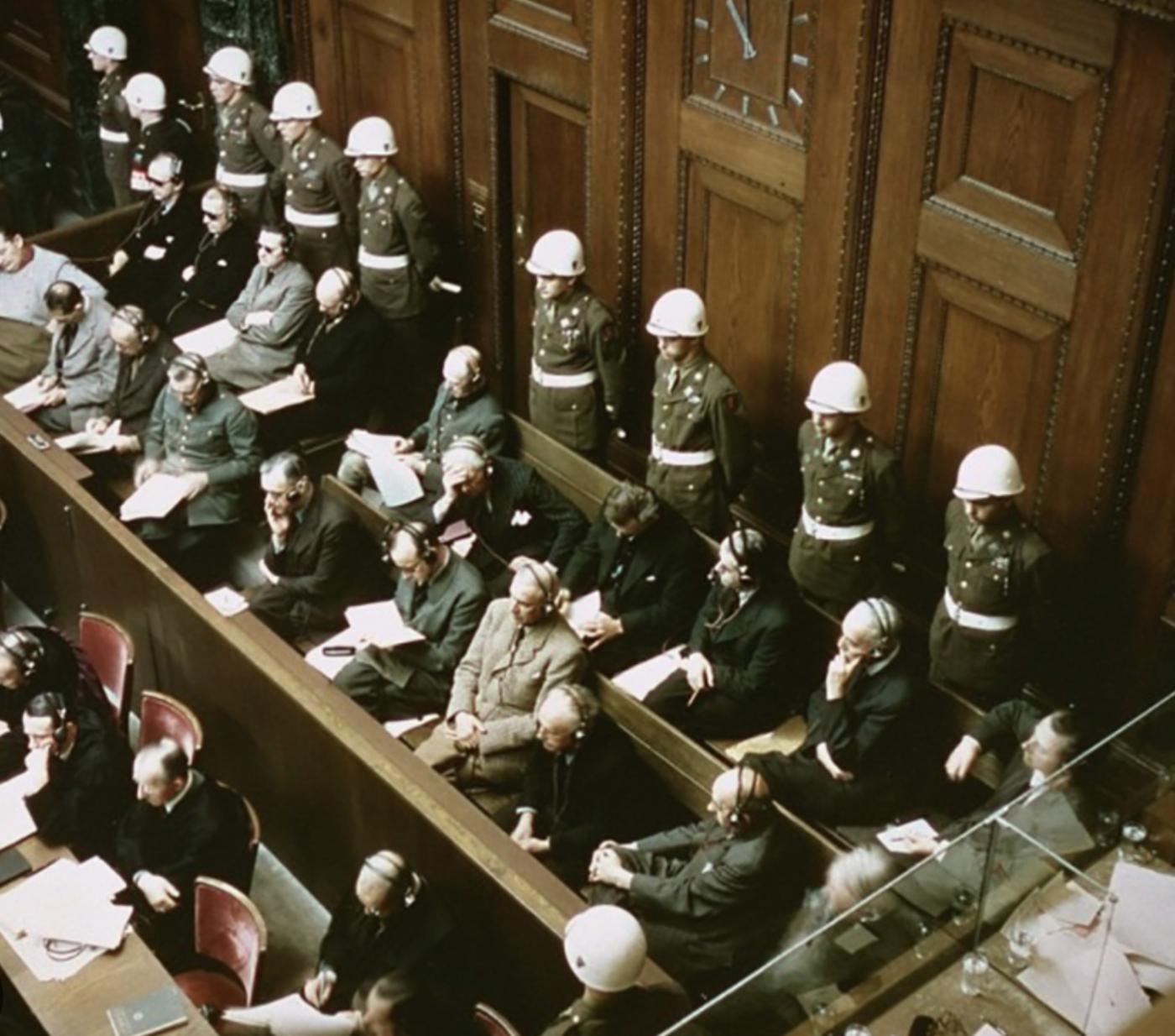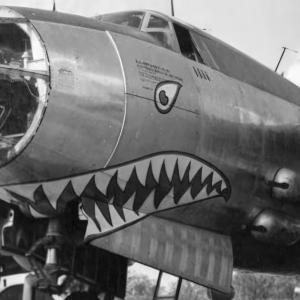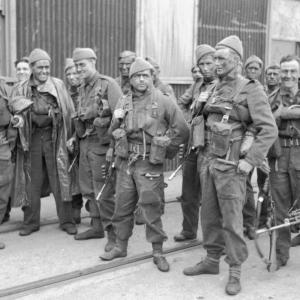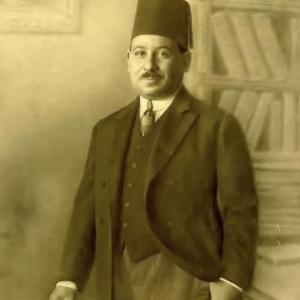
On this day in military history…
On 1st October 1946, after nearly a year of unprecedented legal proceedings, the Nuremberg Trials concluded with the delivery of verdicts against 22 of the most prominent leaders of Nazi Germany. Held in the Bavarian city of Nuremberg, the trials were conducted by the International Military Tribunal (IMT), representing the Allied powers—namely the United States, the United Kingdom, the Soviet Union, and France. These proceedings marked a watershed moment in international law, laying the foundation for modern understandings of war crimes, crimes against humanity, and the principle of individual accountability for actions taken under state authority.
The trials were convened in the Palace of Justice in Nuremberg, chosen both for its symbolic significance—it had been a center of Nazi party rallies—and its practical value, as the building had survived Allied bombing relatively intact and included a large prison complex. Inside Courtroom 600, the legal process unfolded under intense scrutiny, not only by those in the courtroom but also by a global audience following the proceedings through news reports, radio broadcasts, and documentary footage.
The panel of judges was composed of representatives from each of the four major Allied powers. The United States was represented by Francis Biddle, a former U.S. Attorney General. The United Kingdom's judge was Sir Geoffrey Lawrence, who served as the presiding judge throughout the trial. The Soviet Union appointed Major-General Iona Nikitchenko, and France was represented by Henri Donnedieu de Vabres. Each judge was supported by an alternate, and together they faced the challenging task of navigating legal terrain that had never been charted before. The tribunal's legal framework relied on principles laid out in the London Charter of the International Military Tribunal, issued in August 1945, which defined the categories of crimes and procedures to be followed.
The 22 defendants included a mix of political, military, and industrial leaders who had played central roles in the functioning of the Nazi regime. Among the most prominent were Hermann Göring, former head of the Luftwaffe and Hitler's designated successor; Joachim von Ribbentrop, former Foreign Minister; Wilhelm Keitel, head of the High Command of the Armed Forces; Ernst Kaltenbrunner, who oversaw the Reich Main Security Office; and Rudolf Hess, Hitler's longtime deputy. Each was charged with one or more of the following crimes: crimes against peace (planning and waging aggressive war), war crimes (violations of the laws or customs of war), and crimes against humanity (murder, extermination, enslavement, and other inhumane acts).
Over the course of the year, the prosecution presented a staggering array of evidence, including documents, eyewitness testimonies, and film footage of Nazi atrocities. The defense, while varied in strategy, often rested on claims of following orders, lack of knowledge, or the legality of wartime actions under national sovereignty. The judges ultimately rejected the defense of superior orders as absolution of guilt, emphasizing the moral agency of individuals even within authoritarian systems.
On 1st October 1946, the judgments were read aloud in a somber and dramatic session. Of the 22 accused, 12 were sentenced to death by hanging, including Göring, Ribbentrop, Keitel, and Kaltenbrunner. Hermann Göring, however, evaded execution by committing suicide with a cyanide capsule the night before he was scheduled to be hanged. Three defendants—Rudolf Hess, Walther Funk, and Erich Raeder—were sentenced to life imprisonment. Four others received prison sentences ranging from 10 to 20 years. Notably, three of the defendants—Franz von Papen, Hjalmar Schacht, and Hans Fritzsche—were acquitted, a controversial decision that drew mixed reactions at the time.
The Nuremberg Trials did not end with the IMT’s judgment. A series of subsequent trials, known as the Nuremberg Military Tribunals, continued under American jurisdiction, focusing on lower-ranking officials, industrialists, and medical personnel. However, the main trial concluded the first and most significant chapter in a process that redefined global expectations around justice, human rights, and accountability for wartime atrocities.










